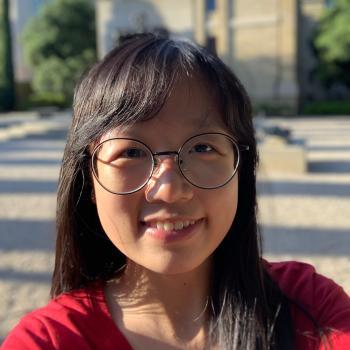
I am a first-generation college student. From a humble upbringing, I have always believed in the power of education. I put my trust in a system that seemingly encouraged disadvantaged children like me to climb the social ladder; upon completion of my undergraduate degrees, I started my career as a classroom teacher. I learned the cold, hard truth after four years of teaching full time: I was a lucky child who was blessed with sufficient intuition to navigate the assessment scheme, but not everybody has it easy. I constantly came across students who kept failing the traditional subjects despite their best efforts. I tried to look for alternatives for these struggling teenagers whose aspirations do not necessarily lie in academia. Unfortunately, there are very few choices left for those from low-income households.
I refused to succumb to the feelings of helplessness. I pledged to make an impact on curriculum and assessment in Hong Kong, specifically one that would reach government advisory committees and persist in the classroom. It was clear to me that I must first be equipped with a solid foundation in academic research and its applications. Since I received my professional training and interned in Europe during my undergraduate years, I decided to diversify my learning experience and look for a graduate program in the US. The ICE/IEPA MA program caught my eye with the rigorous methodological training it provides and its funding options.
The program did not disappoint in the slightest. It was designed in such a way that we students became prepared to set out on our research endeavor, no matter what stage we were at in our research career. As someone new to quantitative research, I was gratified to learn the basics of statistical analyses before diving into my MA paper. To examine the range of cognitive processes assessed in the high-stakes standardized test in Hong Kong, I used qualitative methods to code test items for document analysis and complemented it with quantitative methods. What started out as a crude understanding of the topic has turned into a publishable full-length paper, and it will be always be the project I am most proud of.
While I came to Stanford with a clear idea of what I wanted to achieve, I soon realized that the essence of the program lies not solely in the methodological training but in the people. I was inspired by my program director and the teaching assistants who reviewed no less than twenty drafts of my paper throughout the year; I learned what it means to be an education leader as they dedicated themselves to guiding the next generation of researchers. I was inspired by my advisor and faculty from the GSE who supported my interest in educational measurement; I learned that I should not be ashamed of a lack of statistical expertise. I was inspired by the professional staff at EdCareers who went out of their way to keep us informed and motivated as Covid-19 struck; I learned that even a pandemic cannot break the spirit of a determined soul. I was inspired by my cohort of sixteen who share seven first languages; I learned that it was not the common language that bound us together but a relentless passion to drive change.
After eleven months at Stanford, I am leaving the GSE a little bit wiser, a lot more confident, and incredibly thrilled that I have acquired the research skills I came for and then some. Following this, I will be working at The Education University of Hong Kong on a project that addresses language education policy and its pedagogical implications. I am eager to further my hands-on research experience in a higher education setting before advancing to a PhD program, and I have never felt more equipped.